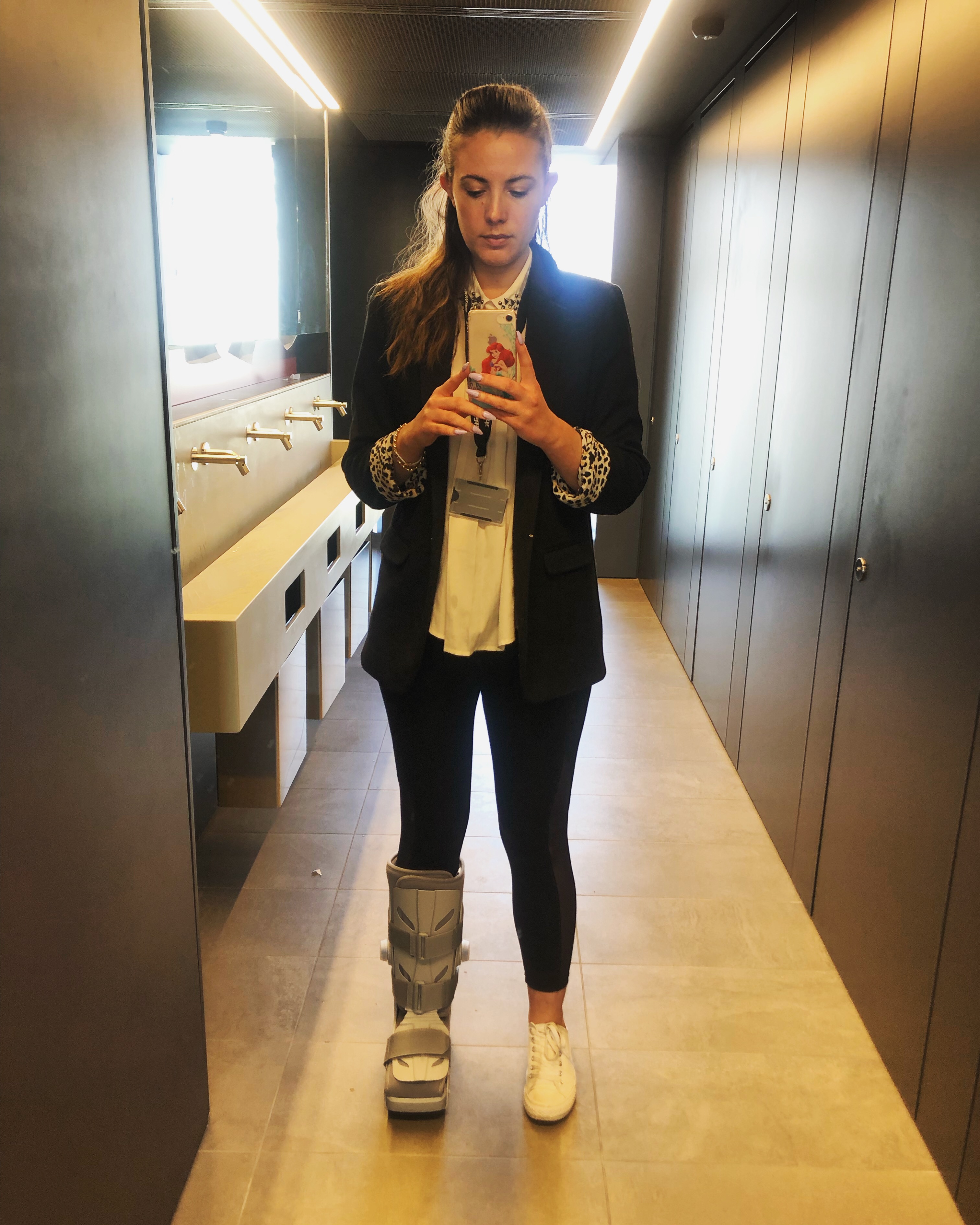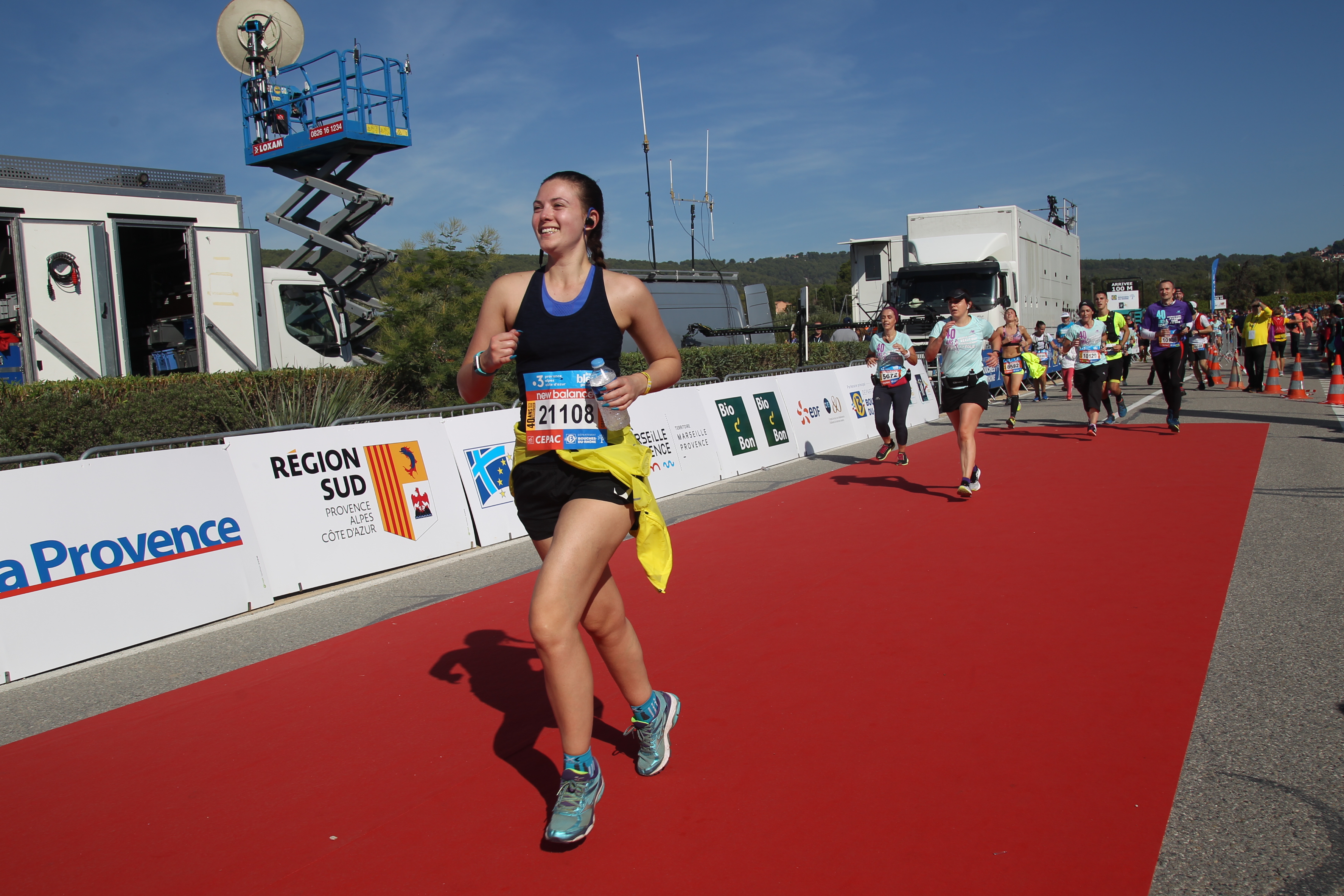The value of failing
Have you ever worked so hard on something and then have it fall through at the last minute? Even if you did everything you could in the run up, and were as prepared as you could have been, it rarely takes the sting away.
This happened to me last year: I was within touching distance of running my first marathon and on my final long training run I fell, twisting my ankle in a dip I hadn't spotted. The disappointment was all-consuming as was the rage at the fact that something I had worked so hard for wasn't going to happen anymore. I headed to A&E with my partner - luckily I wasn't alone - but the relief that nothing was broken was superseded by the realisation that I would need to wear a boot for 6 weeks. Goodbye Stockholm Marathon, dance and yoga, hello crutches.
The following six weeks were painful, both mentally and physically, as I no longer recognised myself. However, the experience taught me three key lessons.
.jpg)
It's okay to feel all the feelings
Feeling like a failure sucks. It doesn't matter if, objectively, there was nothing more you could have done, chances are you're going to take it badly. I firmly believe that failing at something doesn't define you (look at the myriad of examples of hugely successful people who have failed before going onto greatness), it is how you react to it that counts. That doesn't mean putting on a brave face and pretending everything is fine, but it does mean having the wherewithal to shake yourself down and move onto the next thing. Within the context of work, there are three things you can do -
- have a post-mortem - go through everything and try and understand what happened: what worked and what didn't, how you can improve next time?
- make a list of everything you learnt and store it for future reference
- look at best practice and learn from others who have been in your situation
By doing this, you reframe the narrative, shifting the focus from what went wrong to how you will grow from it.
Slowing down isn't the end of the world... nor is asking for help

As Assistants and OMs we're dependable and so we are depended upon; it doesn't necessarily come naturally to ask for help. The first day I hobbled into the office with my crutches and boot my colleagues stared at me incredulously; in the space of a weekend I had gone from running around the office and barely being at my desk to being shattered from a short walk. I remember feeling so frustrated that I couldn't get myself coffee and convinced that I was annoying everyone because I needed help carrying my laptop to meetings. And yet I was only met with concern and care: how could they help, did I want water, did I really need to greet that customer or could someone else do it?
Essentially, I was having a crash course in how to be vulnerable. It was uncomfortable and didn't square with my natural instinct to just keep going. Initially I rebelled, convinced if I could just grin and bear it that I would be fine, before relenting and accepting the help. Admitting weakness was hard, but it fostered a deeper bond with my colleagues; we're all human at the end of the day.
Side note - I will be forever grateful to my team member, Erika, for not only chasing me around the office with crutches when I 'forgot' them at my desk but for actively reminding me to slow down at every occasion.
You're capable of more than you think

Coming back from failure or a mistake can be difficult, especially if your confidence has been knocked. It can be tempting to retreat back to the safety of what we know, shelving future projects. But what would happen if, instead, you tried again or set a stretch goal?
Four months after my accident I ran the Marseille - Cassis Classique, a 20km run through a nature reserve. The race is iconic for many reasons, not least because it has been going for 40 years, the scenery is incredible and the course is brutal, with 10km of climbing. On a personal note, the race was important as Marseille is where my maternal family is from and I wanted to show myself that I could still run distance. About half way through I realised I'd have to dig really deep to finish. So I dug, and I hung on, and the joy I felt crossing the finish line is unlike anything I've felt before. Deep, deep down I thought I might be capable of it, I just needed to prove it to myself to silence the voice telling me I wasn't.
Conclusion
The feeling I felt getting across the line isn't limited to racing, it's the sense of pride we feel when we accomplish something we thought impossible. We all have that one achievement we're incredibly proud of, maybe you pulled off a really successful office move or negotiated extra budget, whatever it is remember it next time you doubt yourself and use it as fuel.
